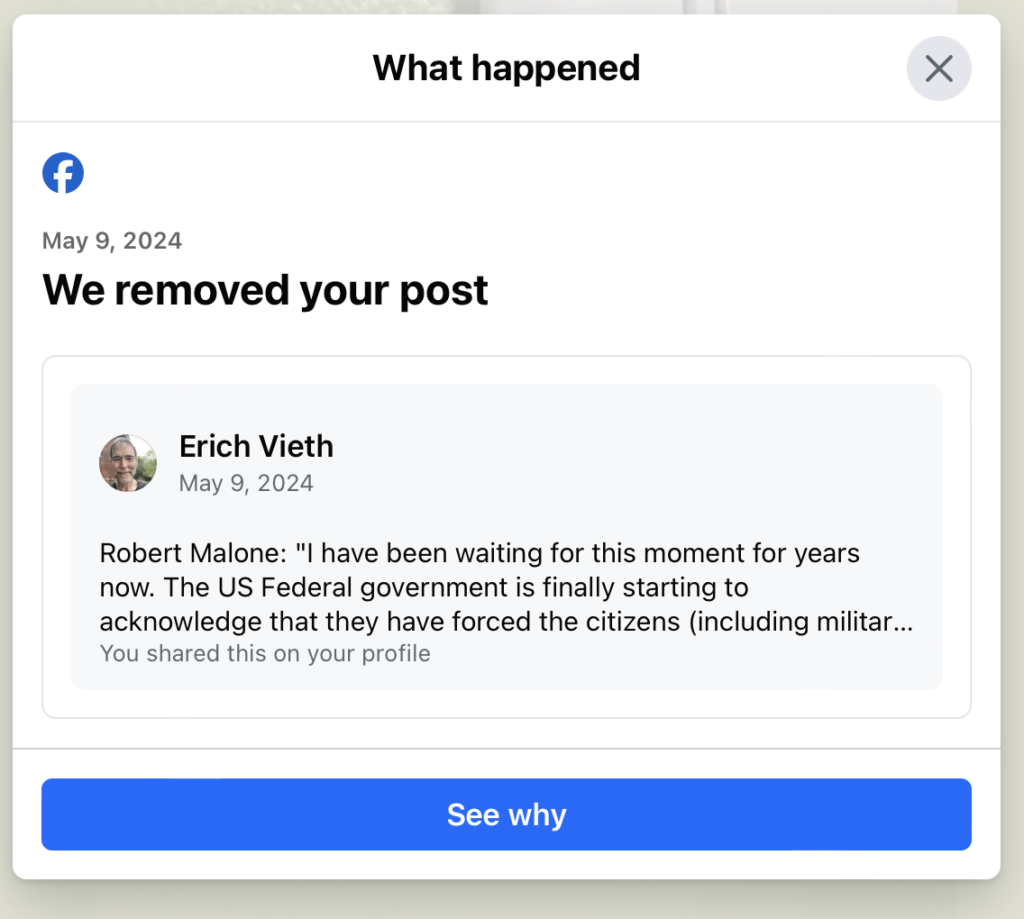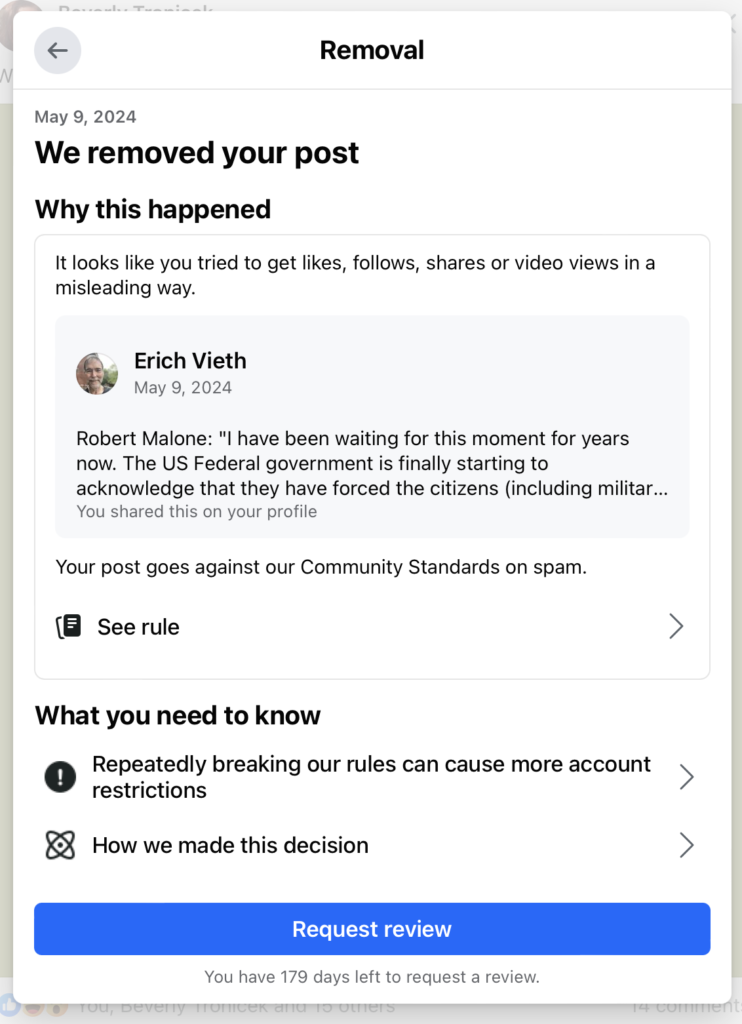Are we finally starting to have a more honest discussion regarding the injuries caused by the COVID "vaccines"? Robert Malone explains:
I have been waiting for this moment for years now. The US Federal government is finally starting to acknowledge that they have forced the citizens (including military personnel) of this country to accept toxic injectable products presented as “vaccines”. Products which either contain or cause patient’s bodies to produce a known toxin; the engineered SARS-CoV-2 spike protein. We are now seeing an incremental rollout of limited hangouts, in which current and former senior federal officials are starting to acknowledge deaths and harms attributable to the various emergency use authorized COVID-19 “vaccine” products.
Of course this comes after years of official federal denialism, cover ups, withholding data, overt marketing of unlicensed medical products (to adults AND children), and a massive censorship/defamation/propaganda campaign which has spanned virtually all of both mainstream media as well as alternative media outlets. Virtually all peer reviewed medical journals have been coopted and compromised, particularly those owned by the WEF partner publishing houses Elsevier and Springer/Nature (see the prior essay “Disease X and the Corrupt Lancet” for further details). Relevant to this point was the recent reveal during the Dr. Peter Daszak public testimony in the US Congress that both the Lancet (published by Elsevier) and Nature (Springer) have refused to testify in response to specific congressional requests.
I decided to share these two paragraphs on Facebook immediately after posting here. Here is Facebook's reaction

I clicked "See Why." Here's what I received.

I looked up the "Community Standards on Spam," yet I don't see any provision that I violated. Keep in mind that I merely quoted Robert Malone, adding no further comment. Who is Robert Malone? For the past three years, I have found him to be a courageous and deep thinker about the medical and social aspects of COVID, as well as society-wide censorship relating to COVID (and many other important issues). There is no doubt that Malone's opinions regarding COVID are important, non-deceptive and deserve to be heard by Americans. Here is an excerpt from Malone's About Page, clearly demonstrating that he is amply credentialed to weigh in on the topics of COVID and censorship:
I am an internationally recognized scientist/physician and the original inventor of mRNA vaccination as a technology, DNA vaccination, and multiple non-viral DNA and RNA/mRNA platform delivery technologies. I hold numerous fundamental domestic and foreign patents in the fields of gene delivery, delivery formulations, and vaccines: including for fundamental DNA and RNA/mRNA vaccine technologies.
I have approximately 100 scientific publications with over 14,000 citations of my work (per Google Scholar with an “outstanding” full-professor impact factor rating). I have been an invited speaker at over 50 conferences, have chaired numerous conferences and I have sat on or served as chairperson on HHS and DoD committees. I currently sit as a non-voting member on the NIH ACTIV committee, which is tasked with managing clinical research for a variety of drug and antibody treatments for COVID-19.
I received my medical degree from the Northwestern Feinberg School of Medicine. I completed the Harvard Medical School fellowship as a global clinical research scholar in 2016 and was scientifically trained at the University of California at Davis, the University of California at San Diego, and at the Salk Institute Molecular Biology and Virology laboratories. I have served as an assistant and associate professor of pathology and surgery at the University of California at Davis, the University of Maryland, and the Armed Forces University of the Health Sciences.






